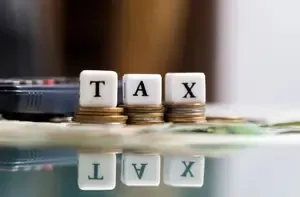Is the New I-T Bill Making Life Easier for Late Filers?

Synopsis
Key Takeaways
- Late filers can claim refunds on excess taxes.
- Small taxpayers must still file returns to claim refunds.
- The bill retains section 433's filing requirement.
- No changes in tax rates from Budget 2025.
- The legislation simplifies aspects of tax filing for the common man.
New Delhi, Aug 12 (NationPress) The recently enacted Income Tax Bill, 2025, as approved by the Lok Sabha, specifies that individuals who submit late returns can receive refunds for excess taxes withheld during a fiscal year.
Experts noted on Tuesday that the legislation lacks provisions to exempt small taxpayers from the requirement to file returns solely to obtain tax refunds.
The revised I-T Bill maintains section 433, which stipulates that ‘every claim for refund under this part shall be made by furnishing a return as per section 263’. Consequently, the law continues to mandate the submission of an income return to claim a refund, with no alternative options permitted.
According to the new bill, taxpayers who file late or amended returns after the deadline will remain eligible for refunds.
Small taxpayers, including seniors, are required to file returns just to claim refunds for excess tax deducted at source (TDS), even if their income does not exceed the basic exemption limit.
The committee had recommended that taxpayers should not be compelled to file a return merely to avoid penalties. “The current obligatory requirement to claim a refund could unintentionally lead to legal action, especially for small taxpayers whose income is below the taxable limit but from whom tax has been deducted at source. In such cases, the law should not necessitate a return just to evade punitive measures for non-filing,” the parliamentary panel had previously suggested.
Preeti Sharma, Partner at Global Employer Services, Tax and Regulatory Services, BDO India, remarked, "The primary benefit of the new legislation is that it is more comprehensible for the average citizen compared to the previous law. The updated bill has incorporated most of the changes recommended by the Select Committee. Taxpayers will still need to determine the appropriate regime to adopt when filing their tax returns. Similarly, there are no changes proposed in tax rates as introduced in Budget 2025."
The new bill was passed, reflecting the suggestions of a 31-member parliamentary panel led by BJP MP Baijayant Panda.
IANS
aar/na










